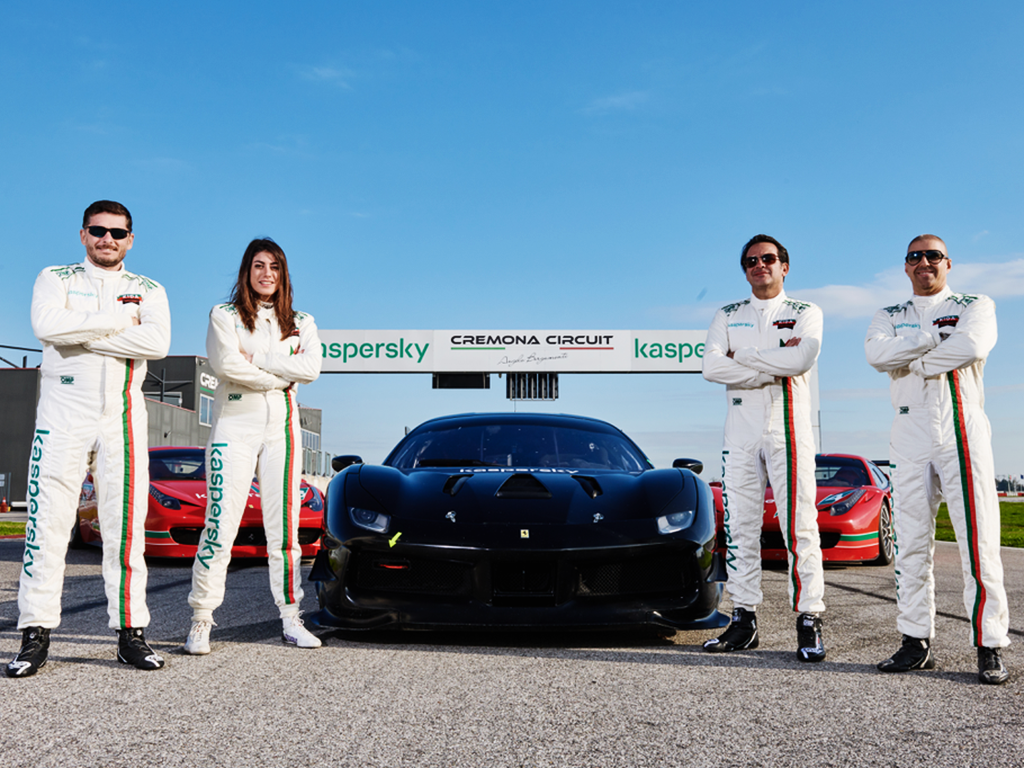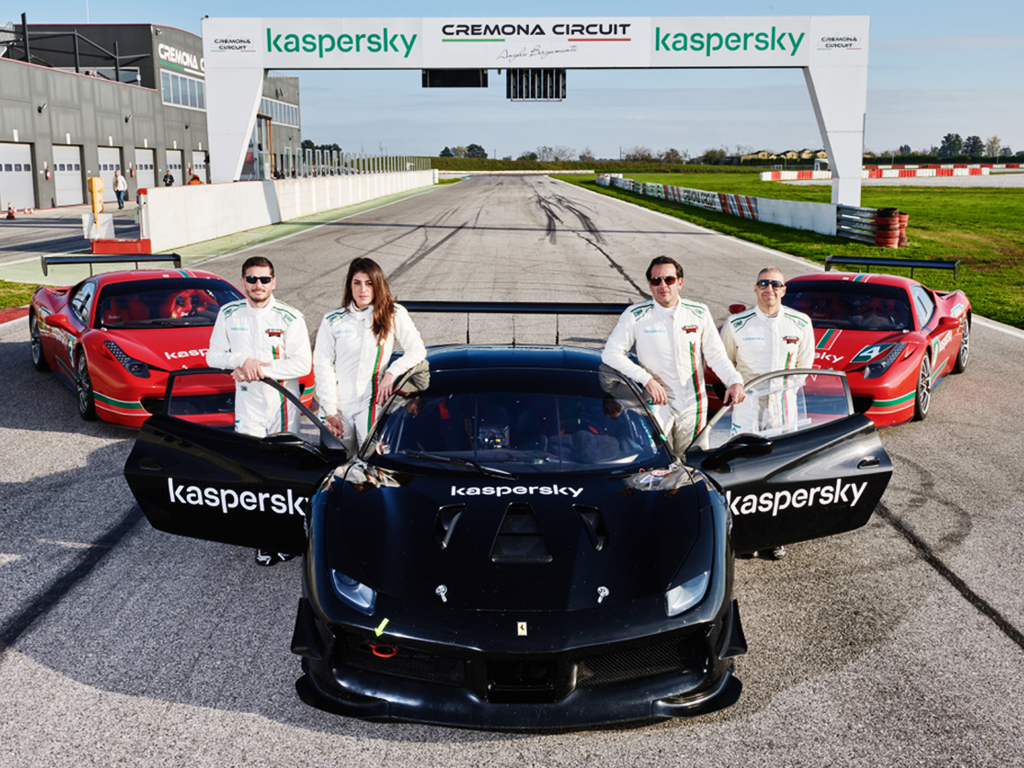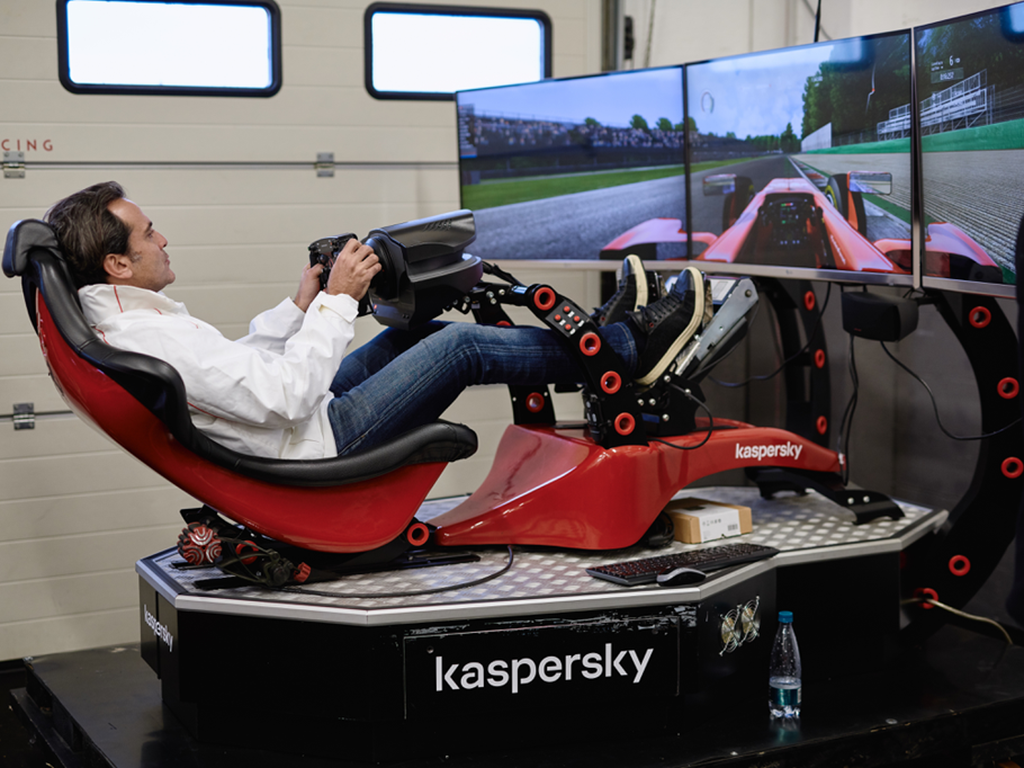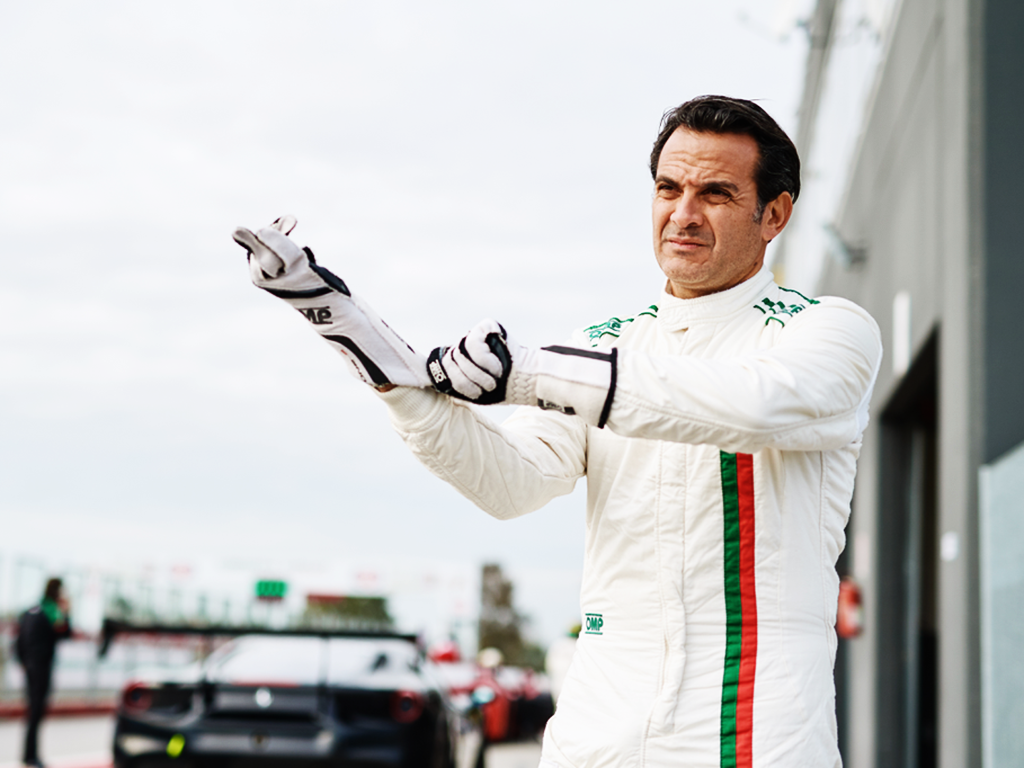The more I speak with business leaders in technology, the more common ground I find with my work, as a racing driver for AF Corse (the Ferrari privateer team), specializing in endurance races of up to 24 hours. I’d like to tell you about the preparation, technology and mindset I use to win races. I hope you’ll find it useful in your work too.
How to win depends on the kind of race you’re in

Before I started endurance racing, I first raced in sprint. With sprint racing, you must give 100 percent all the time. In endurance, with just one mistake, your plan is gone. For the first part, you have to stick to the race strategy agreed with your crew. Then once you’re through the night – the most challenging time – and if your team decides it’s right, you attack at 100 percent.
Everything must be a team decision. They may ask you to drive in the night in the rain. You do it because they trust you and they believe you’re the best person for the job.
Prepare for success
I’m an Italian from Rome, and I’m superstitious. When I put on my racing shoes, it’s always the left then the right. Thirty minutes before the race, I meditate. I listen to music that means something to me; classic tunes like The Final Countdown get me in the zone! I use disco for adrenaline, letting my heart rate move up with the beats, then channeling my breath to reduce my heartbeat.

I also use visualization. I imagine I’m in the car and plan what I’ll do. I’ll envision finishing the perfect race. To think of my success as the success of the team gives me strength.
Teamwork wins the race
We learn to speak the same language. Once I’m in the car, my team makes me stronger, safer and more focused because we must all perform at our peak.
In an endurance race, once you’re in the car, you know you’re doing your best, but you may not be the fastest. The drivers ahead may be on new tires. Getting information from the crew tells you how you’re performing.
Share, share and share with your team
My team and I share our hopes and fears. All the time, we’re sharing ideas about how to make the next race better.
We don’t just win races because of superb performance. Analyzing details matters. Not noticing a small problem can cause you to lose.
A gut feeling is just that, but sharing, analyzing and acting on it can make the difference.
Everyone can play a part, even the cook in the kitchen may notice if someone’s sick. It’s happened – a food allergy turns into a crisis during the race.
Don’t just use technology, use technology well
 It’s a marriage: the technology and the team need to work together. The technology helps balance performance and risk. If you’re too slow, it’s safe, but you won’t win. Too fast, you may crash. If something changes, you need to manage and adapt to succeed.
It’s a marriage: the technology and the team need to work together. The technology helps balance performance and risk. If you’re too slow, it’s safe, but you won’t win. Too fast, you may crash. If something changes, you need to manage and adapt to succeed.
You can work with the engineer to improve the technology step by step, but it’s got to be used in the right way. We raise our game by managing these steps.
Treat your data like a diamond
In our industry, competition is fierce. To win, you have to try new technologies that could make you faster and safer. The car’s data is a diamond, so data theft is always a risk. If someone hacks our data records or email conversations, they could use that information for advantage. Even the simulator drivers use at home holds essential data about how we’re preparing. It’s a relief to know Kaspersky is always protecting Ferrari’s data.
Trust your team members to do their job
My crew is like my second family. We’re real friends. We share our hopes and fears. Working closely together, we share pressure but also our achievements. We understand each other. Together, we achieve more.
Everyone in the team is super professional and highly skilled. You need to understand the potential of each person and trust their expertise. I never say to anyone, “do this” or “do that.” I explain what I want to achieve and let them find the best way. They know how to do their job. If they’re involved, they’ll give more.
To reduce risk, ask questions, follow the plan and adapt
For me, there’s only one risk – ruining the race. I can’t think about crashing or ending up in a hospital. If I start to feel fear, I ask my crew for the information I need that will give me confidence. Then I think about our plan and our goals. Focusing on these reduces pressure.

There’s been significant safety progress in motorsports. If one thing goes wrong, you’ll probably be OK. But if two things fail, you could be in trouble. When you crash, or there’s a fire, you need to stay calm and follow the drill.
We train on how to respond to problems, but not everything can be simulated. Two years ago, the engine ignited when I stopped in the grass. I tried to get out, but the plastic to open the door was on fire, so I had to get out through the other side and kick. You have to adapt.
Data analysis shows the way forward
We use data to raise our game. We use it to develop our plan.
There’s also real-time data on my car’s dashboard. It allows me to make quick decisions when I need to. My dashboard is vital when radio communication fails. It’s enough information that I can keep going. The engineer can see what’s happening, but they may need you to check in the car and from your gut feeling. We’re in constant contact. If something doesn’t work, they tell you how to check it on your dashboard, like the temperature of your exhaust. You have to multitask while you’re racing!
After each race, we have a technical meeting. We analyze the race performance and decide what to do differently, for example, upgrading software. If the race hasn’t gone our way, the mood may be tense and silent. But when we know the solution, the mood improves. It gives us hope we will make the next race safer and better.



